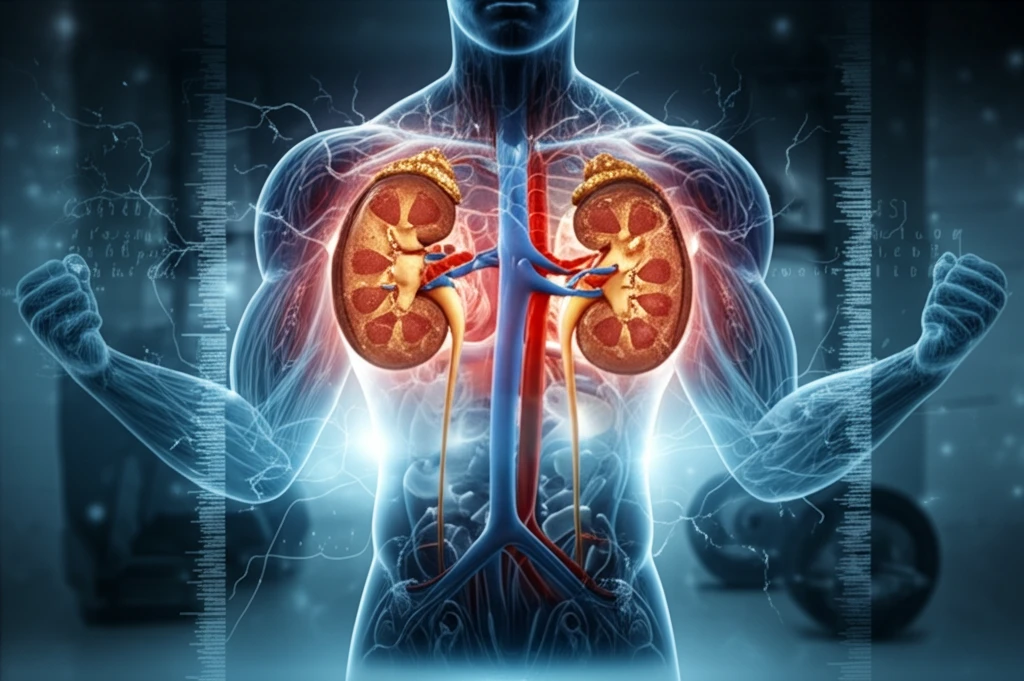
Kidney Health Check: The Ultimate Guide to Muscle Strength & Exercise
"Discover how monitoring muscle health and resistance exercise can transform chronic kidney disease (CKD) management."
Chronic Kidney Disease (CKD) is a major global health concern, affecting a significant portion of the population and increasing the risk of mortality and other health issues. Recent studies highlight a strong connection between CKD and the loss of skeletal muscle mass, which can lead to reduced physical function and a higher risk of cardiovascular problems. Understanding this link is crucial for managing CKD effectively.
The good news is that resistance exercise has emerged as a promising way to counteract muscle loss in CKD patients. By incorporating specific exercises, individuals can improve their muscle strength and overall health. However, more research is needed, especially for those in the early stages of CKD, to fully understand how to optimize these exercise programs. The major evidence comes from studies in patients with end-stage renal disease (ESRD).
This article aims to provide a clear overview of how CKD affects skeletal muscle, why it's important to monitor muscle health, and how to design effective resistance exercise plans to help those with CKD.
Understanding Muscle Wasting in CKD

Muscle wasting is a significant concern in CKD because it directly impacts patient outcomes. Studies have shown that muscle loss is associated with a higher risk of death and major cardiovascular events. Maintaining muscle mass is essential for overall health, as it affects protein synthesis and degradation. In CKD, this balance is disrupted, leading to accelerated muscle loss.
- Reduced Physical Function: Individuals with CKD often experience declines in strength and balance.
- Increased Risk of Sarcopenia: The combination of muscle loss and reduced function increases the risk of sarcopenia.
- Mortality Risks: Physical function is a strong predictor of survival in CKD patients.
The Path Forward
Resistance exercise offers a way to improve muscle health and overall well-being. By understanding the principles of exercise and considering individual needs, healthcare professionals can design effective programs that help people with CKD maintain their strength and live better lives. As research continues, we can expect even more refined strategies to emerge, further enhancing the potential of exercise in CKD management.
